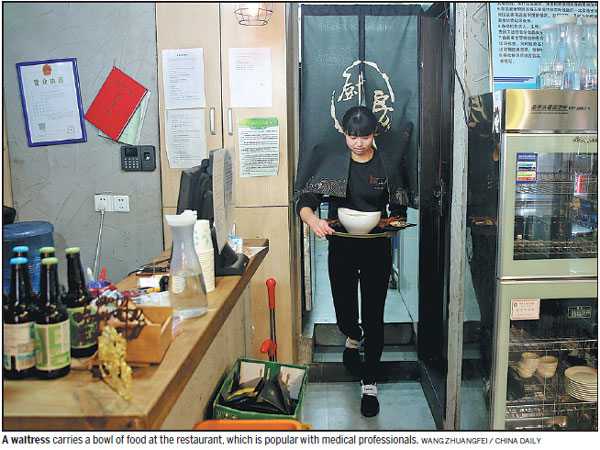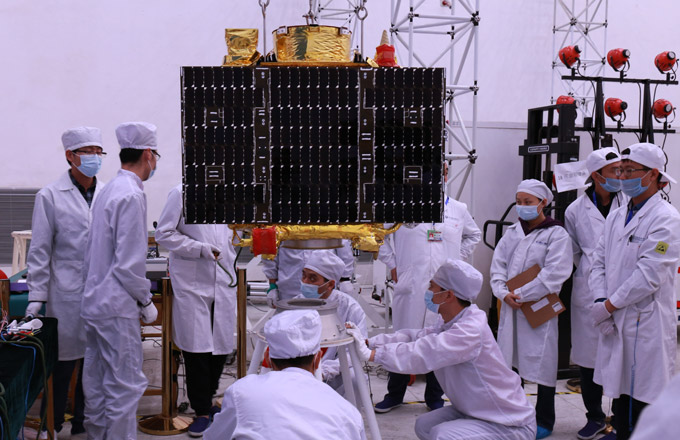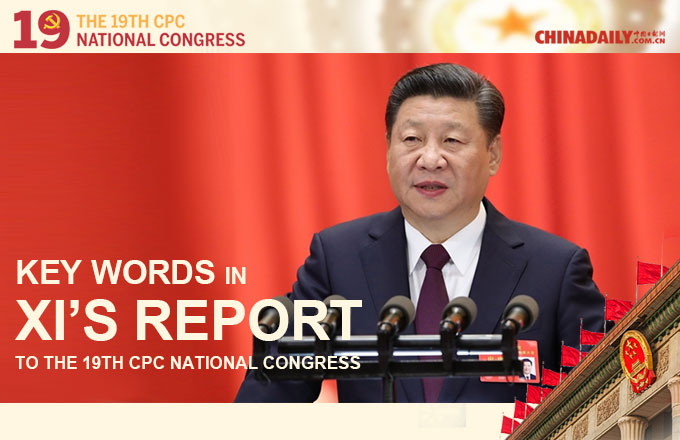Lancet restaurant gives medical professionals food for thought
Hometown favorite
Wang Jian, the restaurant's owner, had no idea the promotion would make his restaurant famous among Beijing's scientific community. The 29-year-old physician, a graduate of the Peking University Health Science Center, comes from an ancient barbecue center and has always wanted to run his own eatery part time.
"Ancient stone paintings show that people from my hometown, Xuzhou in Jiangsu province, first ate barbecue during the Western Han Dynasty (206 BC-AD 24), and even though there are a lot of barbecue restaurants in Beijing, I wanted people to experience the Xuzhou style for themselves," he said.
Wang persuaded a former classmate, Cheng Si, to become his business partner, while 16 other friends, most of whom are doctors, invested in the restaurant.
He chose a surefire winner for his part-time profession because barbecue is one of the mainstays of Chinese dinner tables. Last year, it held a 20 percent share of the national dining market, second only to hot pot as the country's most popular dish, according to a report by The First Barbecue Industry Salon, a forum organized by the China Cuisine Association.
Cheng, a 26-year-old physician, and Wang spent a lot of time researching their main ingredient - goat's meat. "After analyzing the meat, we discovered that it contains a substance called 4-Methyloctanoic acid, a fatty acid that produces a special mutton-type flavor when barbecued," Cheng said.
The restaurant opened on April 23, after a month's preparation and with total investment of more than 1 million yuan. It quickly became so popular that Wang and Cheng had to hire a full-time manager so they could continue with their medical careers.
An educated clientele
The restaurant's name ensures that it attracts many members of the capital's medical fraternity; some are renowned authorities on a range of diseases, while others are lecturers at some of the leading medical schools.
"They all come along to support our business," Wang said.
The promotion came about one night in June, when a doctor from Peking University First Hospital invited a colleague who was dining at a neighboring table to have a drink with him. When the offer was declined, the doctor stood up and shouted, "Doctors from PKU First Hospital get up and have a shot with me!" leading more than half of the customers to stand up and raise their glasses.
The incident made a deep impression on Wang, and the promotion was born. "Initially, we only gave discounts to authors of papers published in The Lancet, but then we expanded the promotion to all papers covered by the Science Citation Index and the Social Sciences Citation Index so a larger number of scholars and researchers would also benefit," he said.
The day after the promotion was posted, 16 customers arrived, all carrying copies of papers they had published in academic journals. So far, the highest impact factor has been 29.51, which earned the author a discount of 295 yuan.
Cheng said the discount system encourages the scholars to be more productive. "If their hard work receives unusual support like this, it makes things more interesting," she said.






















